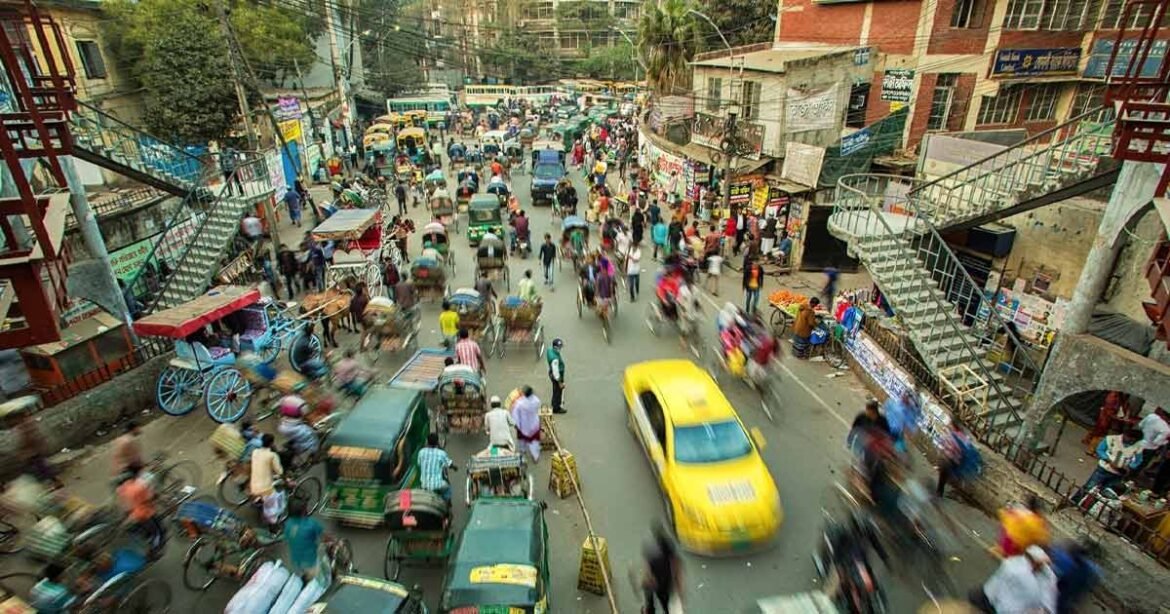While IMF has granted the $4.7 billion loan to Bangladesh, it has imposed some conditions for the nation to overcome economic crisis; which has affected the middle- and lower-income people negatively.
IMF‘s $4.7 billion loan to Bangladesh to address the country’s economic crisis is subject to a number of restrictions. The reduction of subsidies in numerous areas is the most important criterion. Additional conditions include disclosure of foreign exchange reserves, reduction of central bank borrowing, leaving the value of the TK against the dollar totally to the market, and future tax increases on savings bond (shanchayapatra) profits paid to customers.
YOU CAN ALSO READ: HOW CAN IMF LOAN HELP CURVE THE LC CRISIS FOR RMG SECTOR?
The prices of products and services will climb more if the government cuts subsidies. With reduced subsidies, the government’s balance of payment (revenue and expenditures) will be stable, but the middle and lower classes will endure inhumane misery.
Increased cost of goods and services
The government is incrementally increasing the prices of products and services in order to comply with the IMF’s criteria. The price of fuel, electricity, fertilizer, and oil has already risen. As a result, the prices of all goods and services are rising, which contributes to an increase in inflation. The decreasing value of money is reducing the purchasing power of individuals.
Following the Covid-19 outbreak and economical effects of the Russia-Ukraine war has led to the escalation in prices. Due to the dramatic depreciation of taka versus the dollar, the cost of virtually all imports into Bangladesh have skyrocketed. The costs of imported items are soaring. Bangladesh has had the greatest increase in commodity prices compared to India, Nepal, the Maldives, and Bhutan.
Although the price of several products has been fixed by the government at various times, it is not being implemented properly. The government has implemented Open Market Scales (OMS) for the poor and disadvantaged, although there is a lack of transparency in this regard. These items are also reportedly available at conventional markets.
Consumers in a fix!
Very high product costs are constantly suffocating the consumers. Every product, including rice, lentils, wheat, fish, meat, eggs, and vegetables, is priced extremely expensive. Despite the ample supply of all types of goods on the market, dealers are boosting prices with excuses.
To keep up with the rising cost of the goods, the working class is being crushed to the point where they are unable to afford the standard food intakes needed to function. There is a negative impact on people’s physiological and psychological well-being. Traders are destabilizing the market by raising prices on various pretext.

Poor purchasing power: who are behind it?
According to a World Bank report, the syndicate and failure of market management is behind the increase in prices in Bangladesh. The poor are getting poorer with rising commodity prices. As a result, the purchasing power of this class of people has decreased.
There is no reconciliation of income with expenditure. The ones with savings are being forced to break their deposits to bear the expenses of the family. As a result, bank deposits have decreased. If there is no saving, investment will not increase; Employment will not be created, which will have an adverse effect on the economy.
It can be said with certainty that due to the increase in commodity prices, the majority of people in this country are living their daily lives in financial poverty. All in all, low- and middle-income people are passing through a difficult time.
Holy Ramadan is just around the corner. Traders have increased the price of every product in the market with the pretext of supply demand of Ramadan months ago. Especially those products, which the fasting people will buy in small quantities at higher prices. Increasing the price of goods during Ramadan has become a traditional norm. Although government had fixed the prices, there was no benefit as the sellers are selling products with their desired prices. No action has worked against the business syndicates nor is there any improvement in market management.
Difficult times ahead
According to a report published by United Nations Conference on Trade and Development (UNCTAD) last year, the ongoing global recession would become more pronounced this year. The effects of recession would reduce global economic activity and investment would decrease. Agricultural production would be hampered and pose a major threat to food security. The number of food insecure people is expected to increase.
A large section of the lower middle class, especially the retired workers, buy savings bonds with the money they have saved to meet their daily household expenses without having any reliable investment opportunities. This time the IMF has proposed to increase the tax on the profit payable to the savings card customers and to make the interest realistic. The government was forced to slash the profits of savings bonds to abide by IMF.
Government has always given generous number of subsidies to reduce the suffering of the poor. With the increased cost of living, and government constrains in reducing subsidies, the poor and middle-class people are at the most vulnerable condition. IMF is not at fault with its viewpoint as reducing subsidy would help Bangladesh to recover its economic shortage and budget deficit. However, the question is, in such a situation, where will the middle and lower classes stand?
Little sight of relief is that we are still in a better position than Sri Lanka and Pakistan. In order to maintain this position, the government may adopt a stricter cost reduction policy, austerity in every office and court, discourage the wastage of national resources including going abroad for medical treatment if not necessary. If not, there may be struggle in public life, degradation of law-and-order situation, which will never bring welfare to anyone.


